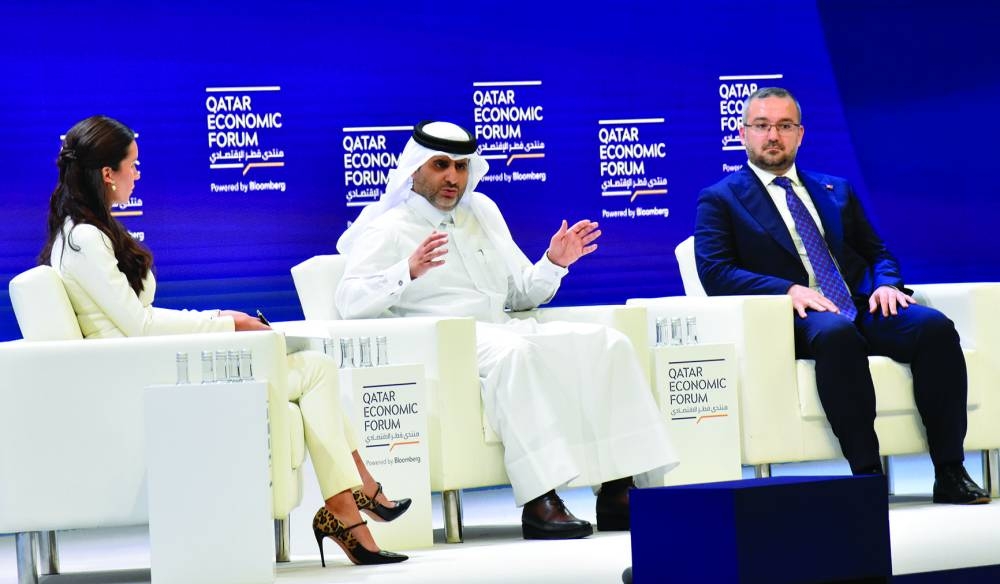
The Qatar Central Bank (QCB) plans to issue its first guidelines on how to adapt artificial intelligence (AI) in financial institutions in the country in a few weeks, said HE the QCB Governor, Sheikh Bandar bin Mohamed bin Saoud al-Thani.
“Regulations are very important. That’s going to help financial institutions better adapt AI and mitigate the risks. At this stage, we are working on guidelines, which we have sent to financial institutions as a consultation paper. We are going to see their feedback. In future, there may be a framework that governs data, AI, risk modelling etc.
Participating in a panel session entitled ‘Artificial intelligence and reinventing banking’ at the Qatar Economic Forum yesterday Sheikh Bandar said: “Any new technology is fraught with risks...but the question is what type of risks. My main concern is about cyber-attacks and abusing technology to attack financial institutions.
“I am equally concerned about data privacy, biased data and market manipulation. As a regulator, first of all, we have to improve our institutional capacity. And we have to hire skilled people to closely monitor the new technology that has been adopted in financial institutions.”
The QCB governor noted that AI is not a new topic for the financial industry.
“Financial industry is data driven. Financial institutions use to have predicted models, algorithms and technology, for example trading. However, by adopting the new AI technology, we assume that it is going to enhance efficiency, customer experience, help manage risks better and compliance.”
On AI and inflation, Sheikh Bandar noted: “In the mid to long-term, my own belief is that AI will contribute to bring down inflation. This is because AI is assumed to enhance efficiency, productivity and also improve profitability.
“But in the short term, I believe AI could contribute to an increase in inflation a little bit. This is because lots of institutions will need to invest in hardware, software, new technology and training. And that might cause prices to increase a little bit.”
Sheikh Bandar reiterated that Qatar will keep its currency (riyal) pegged to the US dollar.
“We are pegged to the dollar. As a central bank, our main duty is to maintain the pegged rate. That’s why we are keeping the interest rate high in Qatar, despite inflation declining to a reasonable level.
“Our job is to maintain the pegged rate...our job is to make sure there is no capital outflow from our market. So, we have to manage the balance between monetary policy and growth as well as protecting the economy from capital outflows.
“Historically, this regime worked very well for the State of Qatar. We are going to keep our currency pegged to the US dollar.”
On global inflationary outlook, Sheikh Bandar said: “In 2023, inflation improved significantly due to the improvement in supply chain and decline in the prices of food and energy. From the beginning of 2024, until now, inflation varied from country to country...one geography to another.
“For example, in the US, inflation is still high. In the beginning of this year, there were expectations of three cuts for 2024. But now things have changed...because data coming from the economy has changed. In the US, inflation is still high. The interest rates might stay higher for longer.
“While in Europe, we can see inflation declining to nearly 2%. A better situation than in the US.”
He said no central bank will move to cut interest rate, unless they are confident enough that inflation is at its targeted level. They need more confident data to move and cut interest rates.
Sheikh Bandar also said that political stability is essential to see growth in economies around the world.

